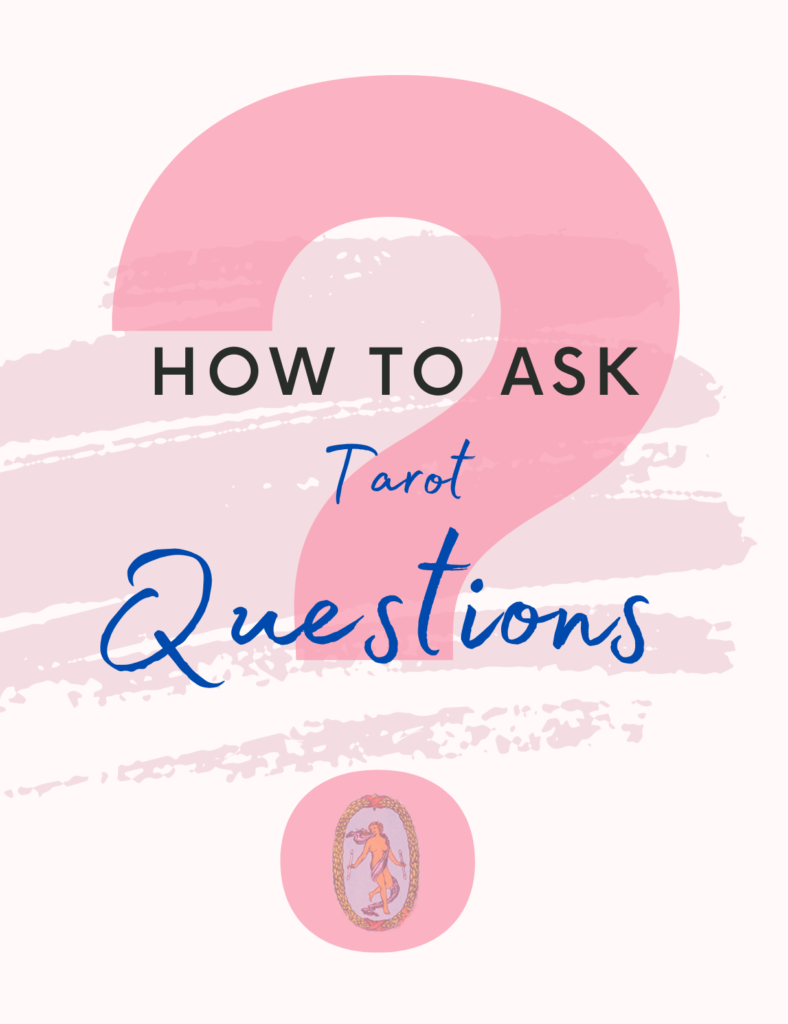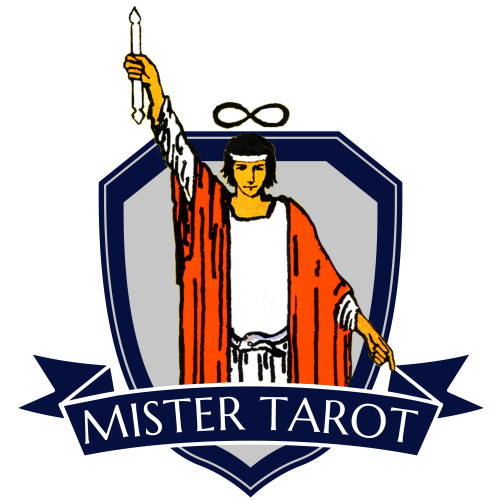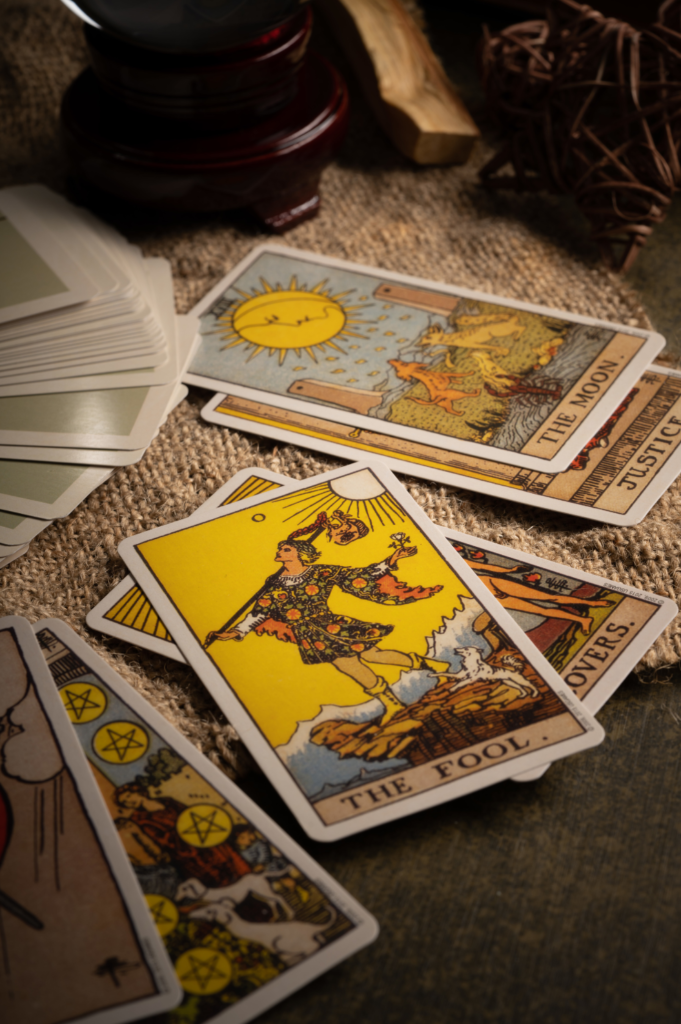 Whether you’re a seasoned practitioner or a curious beginner, knowing how to ask the right questions is critical to unlocking the wisdom of the cards. In this guide, we’ll explore the types of questions appropriate for Tarot readings, the best way to phrase those questions and the kinds of queries you should avoid.
Whether you’re a seasoned practitioner or a curious beginner, knowing how to ask the right questions is critical to unlocking the wisdom of the cards. In this guide, we’ll explore the types of questions appropriate for Tarot readings, the best way to phrase those questions and the kinds of queries you should avoid.Appropriate Questions for Tarot
When asking questions for a Tarot reading, the possibilities are endless. However, certain questions tend to yield more insightful and helpful answers. Here are some examples of appropriate questions for Tarot:
- Open-ended questions: These questions allow for a broad range of interpretations and insights. For example, “What do I need to know about my career path right now?”
- Guidance-seeking questions: These questions seek guidance or advice from the cards. For example, “What steps can I take to improve my relationship with my partner?”
- Exploratory questions: These questions delve into more profound aspects of the self or situation. For example, “What underlying emotions are influencing my decision-making process?”
- Reflective questions: These questions encourage introspection and self-awareness. For example, “What lessons can I learn from my recent challenges?”
How to Phrase Your Questions
How you phrase your questions can significantly influence the quality of your Tarot reading. Here are some tips for crafting effective questions:
- Be specific: Instead of asking vague questions, be as specific as possible. This helps focus the energy of the reading and provides more precise insights.
- Focus on yourself: When asking questions, focus on yourself and your actions rather than trying to predict the actions of others. This empowers you to take control of your own life and decisions.
- Phrase questions positively: Instead of framing questions in a negative or fear-based way, try to phrase them positively and empoweringly. This can help shift your mindset and attract more positive outcomes.
- Keep it in the moment: “What is my purpose in life?” might feel profound, but it’s too vast. Instead, focus on a specific area: “What can I do this month to align my career with my purpose?”
Questions to Avoid
While Tarot can provide valuable insights into many aspects of life, specific questions are best avoided. Here are some examples:
- Gossip or invasive questions: Asking about other people’s private lives or spreading gossip through the cards is unethical and leads to a negative mindset.
- Questions with a fixed outcome: Asking questions that assume a fixed outcome, such as “Will I get married?” or “Will I be successful?” can limit your ability to see alternative paths and possibilities.
- Questions lacking sincerity: Asking questions insincerely or without genuine curiosity can result in vague or misleading answers. It’s essential to approach Tarot with an open heart and mind.
- Focus on growth, not prediction: Tarot offers guidance, not fortune-telling. Don’t ask, “Will I win the lottery?” or “Will my ex come back to me?”k Instead, focus on personal growth: “What are my strengths and weaknesses in relationships?” or “How can I overcome this creative block?”
- Avoid yes/no questions: These questions restrict the Tarot’s potential and offer limited insight. Instead of asking questions that can be answered with a simple “yes” or “no,” try to ask open-ended questions that invite deeper exploration and insight.
- Questions of Control: Remember, the Tarot reflects your inner world and potential, not the actions or intentions of others. Avoid questions such as “Does my partner love me?” or “Will they ever change?” Instead, ask: “What can I do to strengthen my self-love?” or “How can I communicate my needs more effectively?”
 Everyday Tarot
Everyday Tarot
Tarot cards can offer practical guidance in various decision-making situations. Here are some specific examples:
- Choosing a Car: Draw cards to represent different car options and assess the strengths and weaknesses of each.
- House-Hunting: Use Tarot to gain insights into potential homes, assessing cost factors, hidden problems, and suitability.
- Career Change: Explore the potential outcomes of a career change by drawing cards for different options and their implications.
- Investment Decisions: Seek guidance on financial investments by using Tarot cards to assess risks, potential returns, and overall outcomes.
- Educational Choices: Draw cards to understand the potential benefits and challenges of different educational paths or courses.
- Health and Wellness: Seek insights into health decisions, such as choosing a fitness routine or dietary changes, to promote overall well-being.
- Travel Planning: Use Tarot to explore the potential of different travel destinations’ experiences and challenges.
- Business Ventures: Assess the viability of a business idea or venture by drawing cards to understand potential success factors and challenges.
- Legal Matters: Gain insights into legal situations by drawing cards to understand possible outcomes and the best course of action.
- Wedding Planning: Use Tarot to gain insights into decisions related to wedding planning, such as venue choices, guest lists, and themes.
- Technology Purchases: Assess the pros and cons of different tech products before making a purchase decision.
- Friendship Dynamics: Gain insights into your relationships with friends and determine the best approach to strengthen or navigate them.
- Time Management: Seek guidance on managing your time effectively by drawing cards to prioritise tasks and activities.
- Negotiations: Use Tarot to gain insights into negotiation situations, helping you understand the motivations and perspectives of others.
- Pet Adoption: Draw cards to gain insights into potential pets, considering factors like compatibility and the responsibilities involved.
By asking the right questions and phrasing them effectively, you can unlock the wisdom and guidance of the Tarot cards to navigate life’s journey with clarity and insight. So, shuffle the deck, formulate your inquiries with intention, and embark on a journey of self-exploration filled with insightful revelations.

 Everyday Tarot
Everyday Tarot